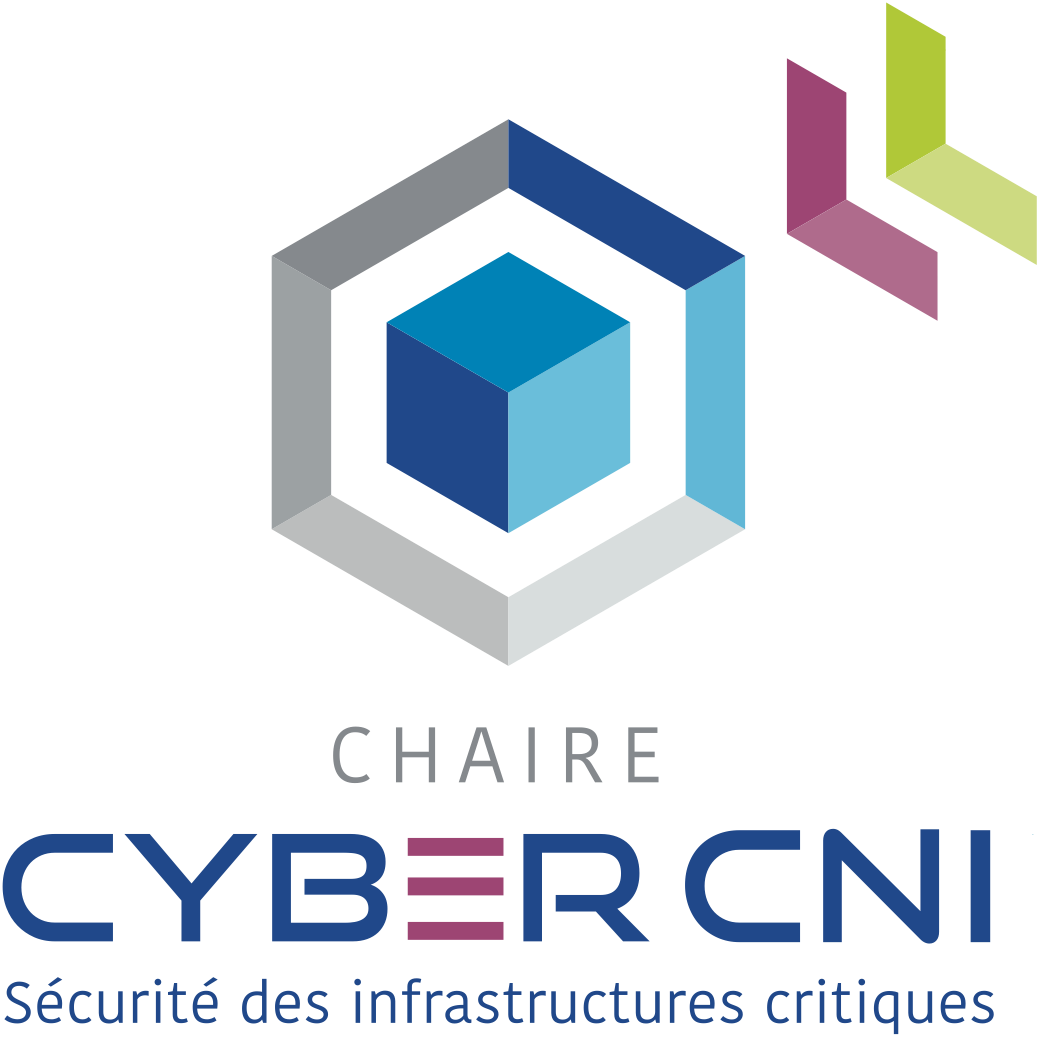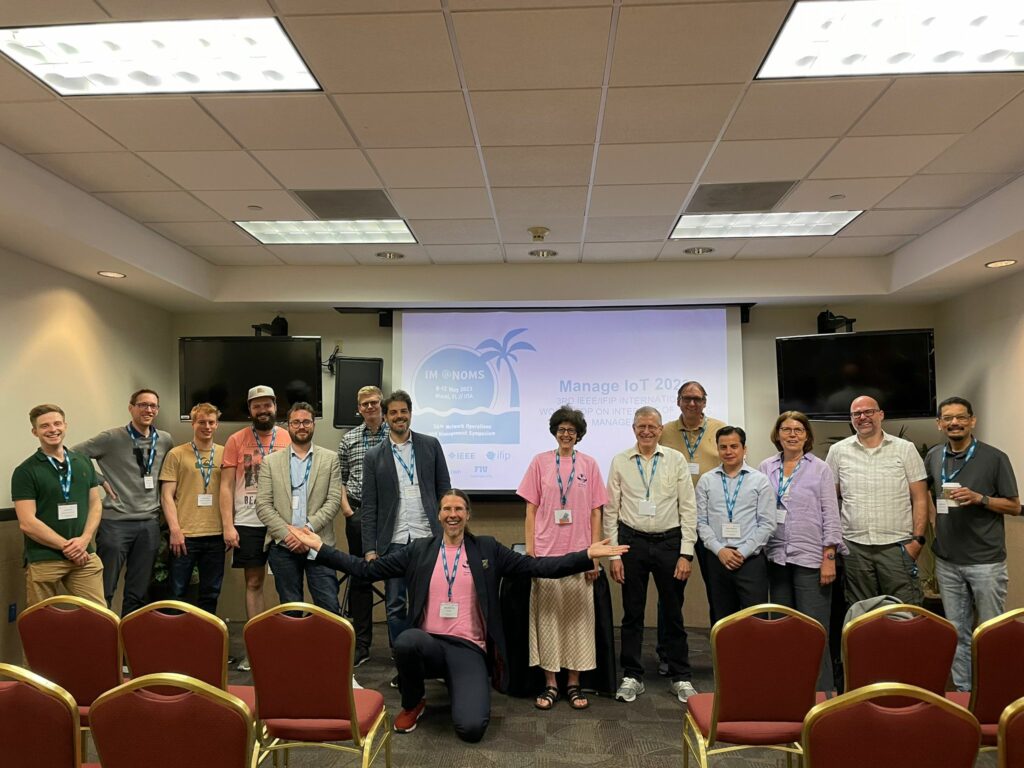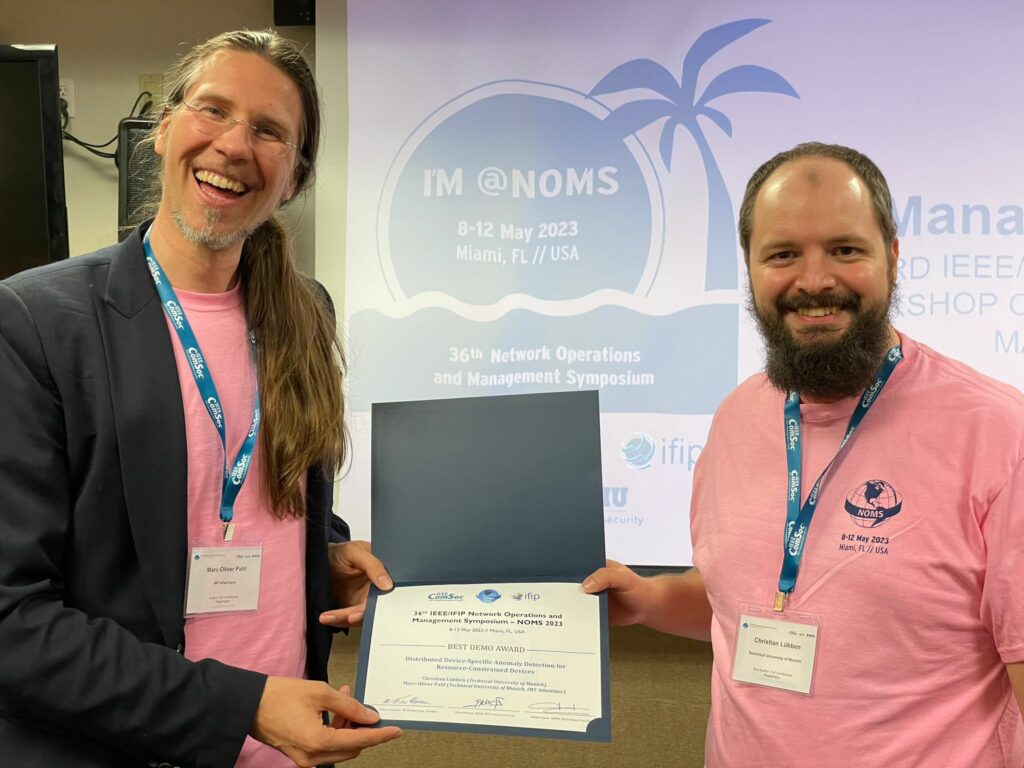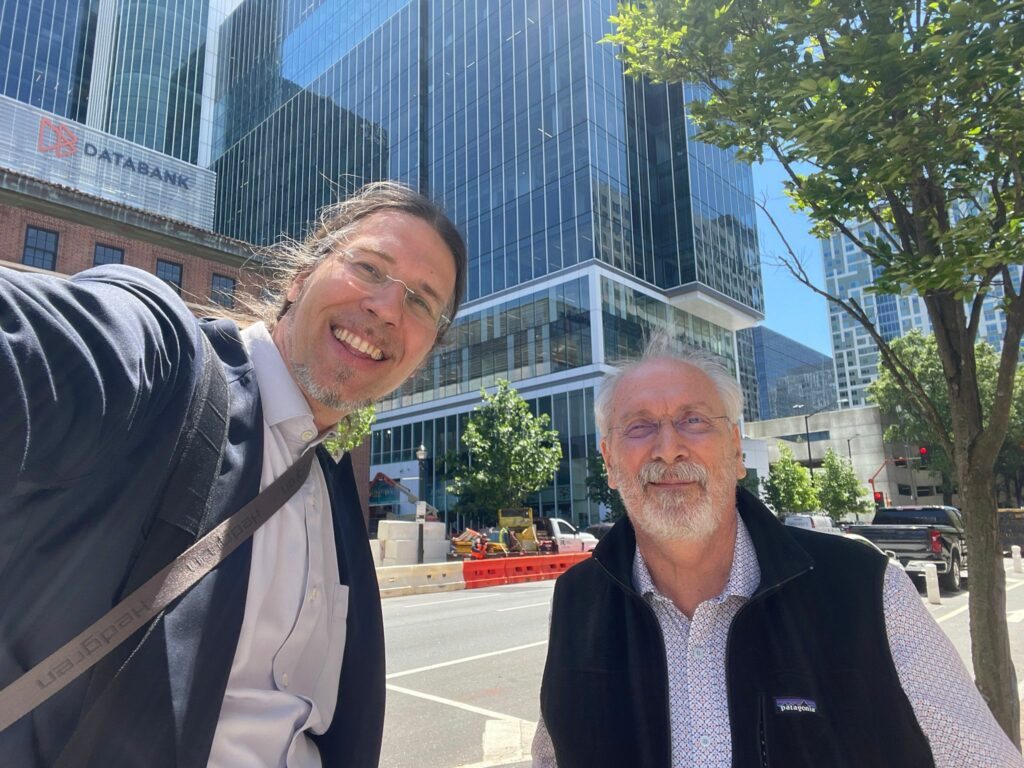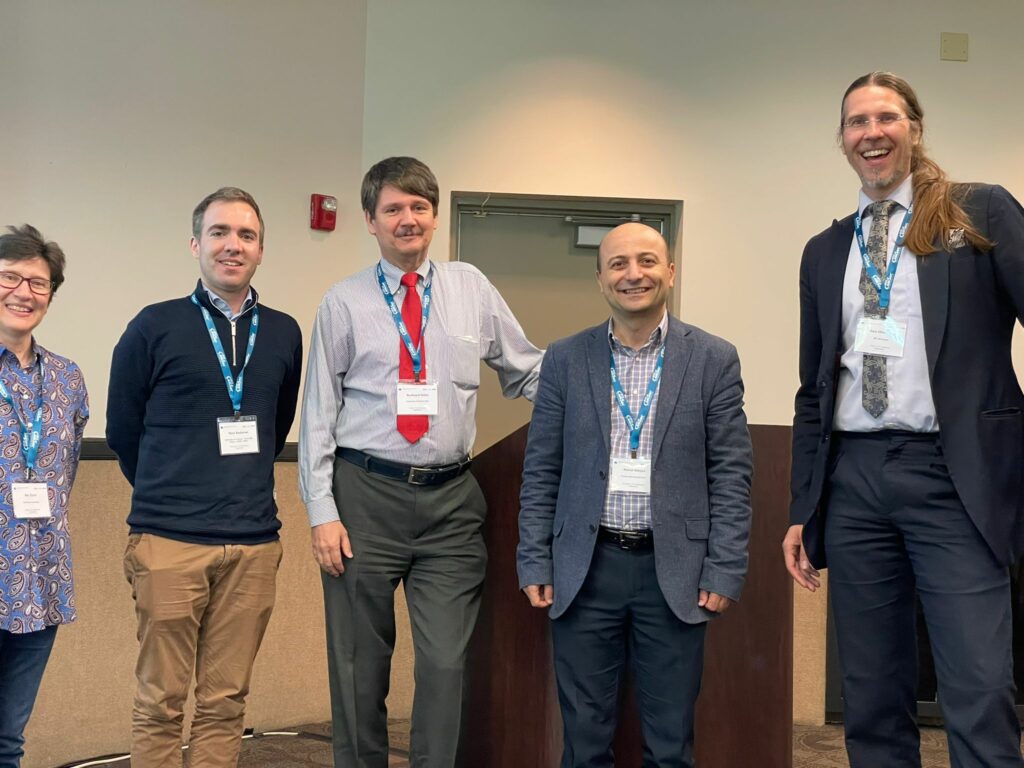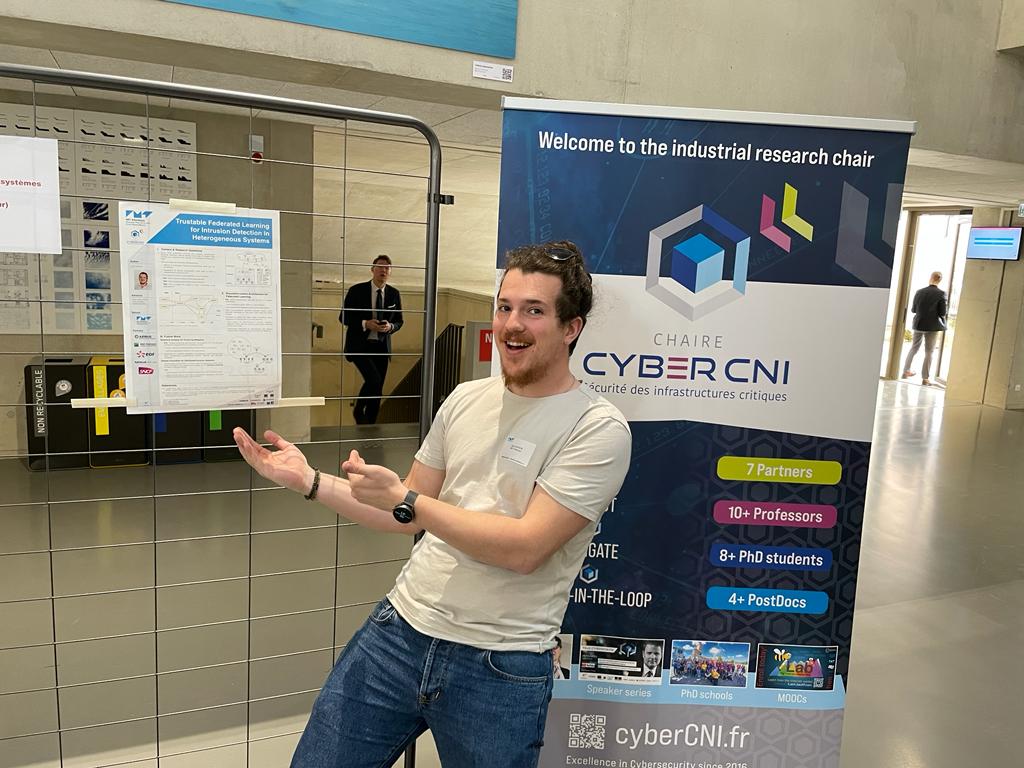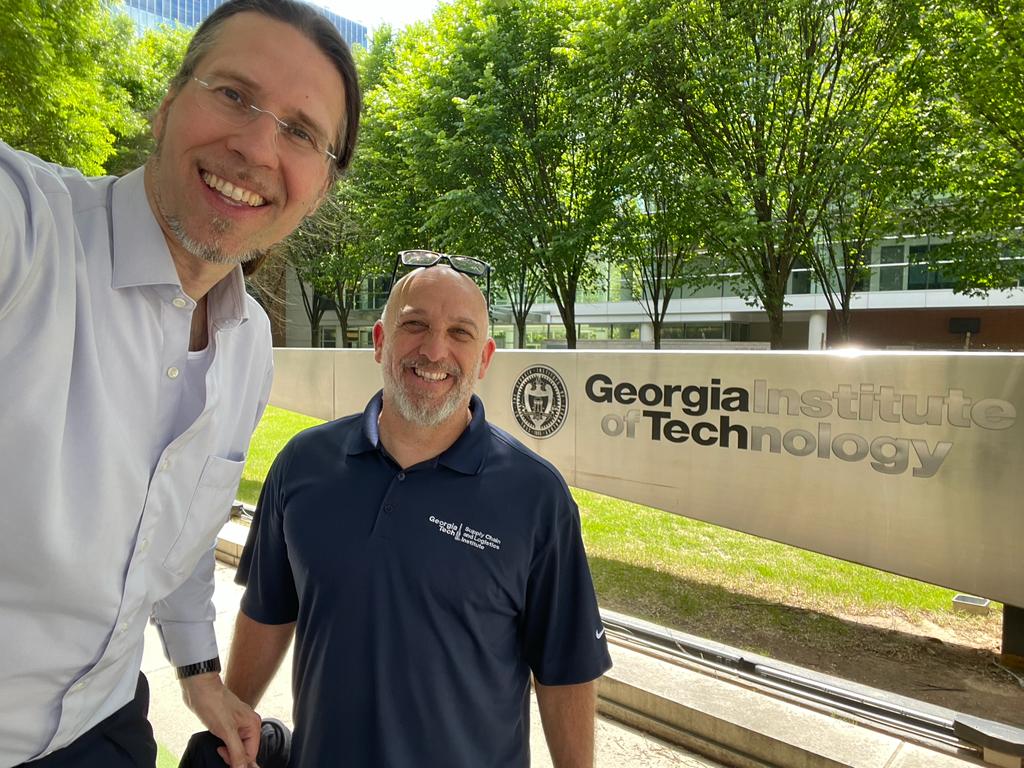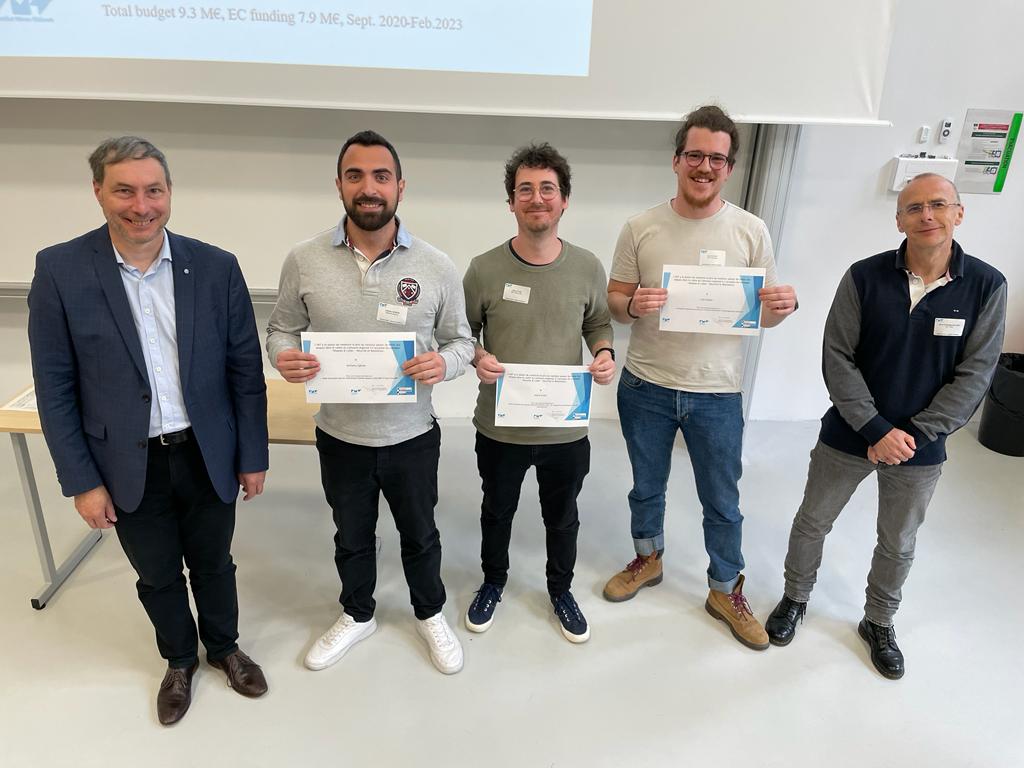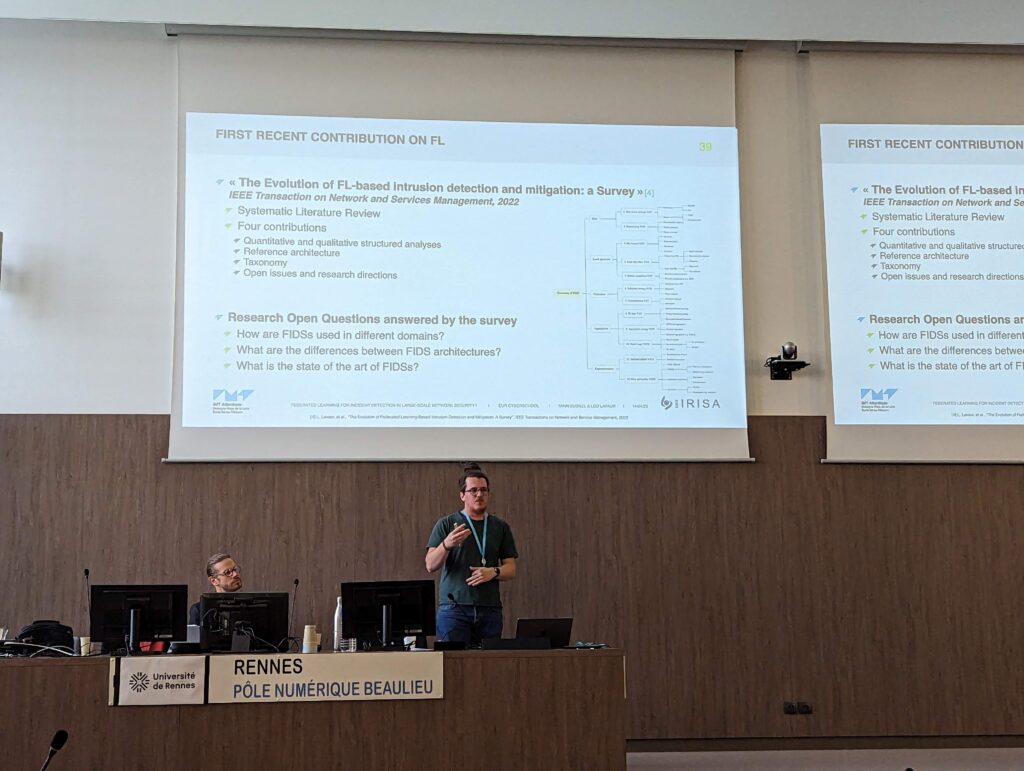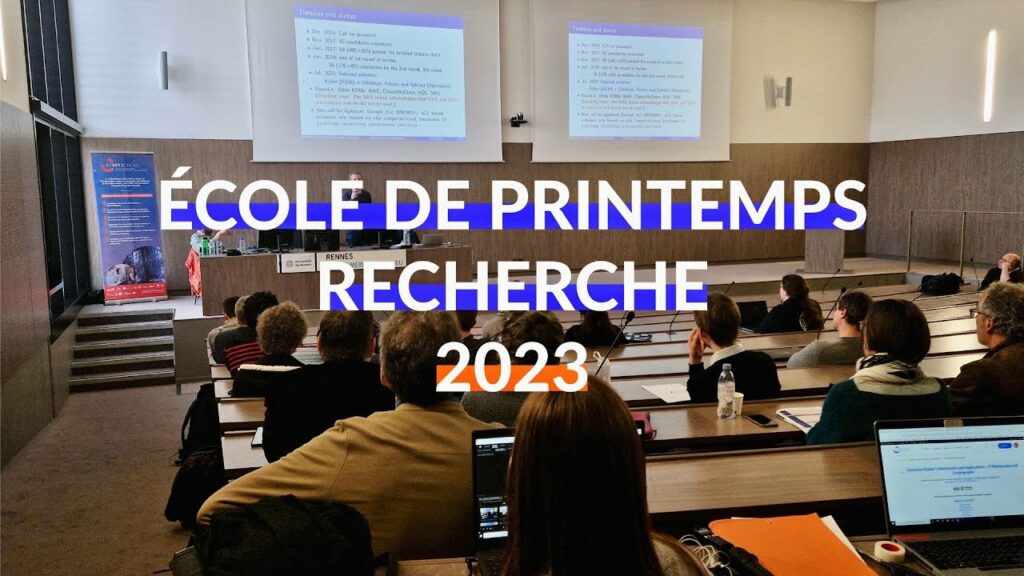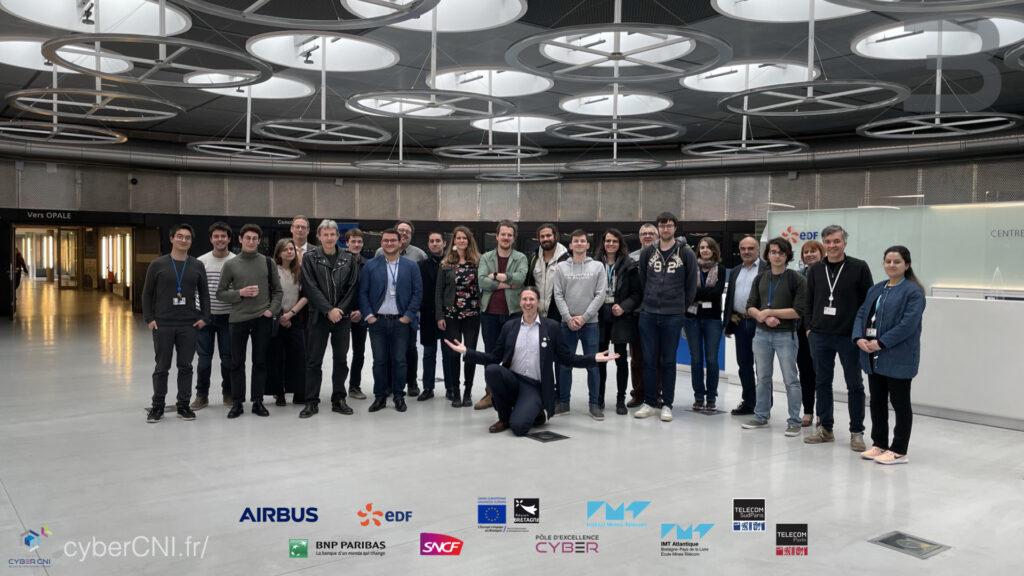The IoT is probably the most challenging domain for today’s IT and OT systems. Therefore, we co-organized for the 6th time a workshop around managing the IoT. As the past editions, it was co-located with the Network Operations and Management Symposium (NOMS) in Miami, USA.
Our paper “Distributed Device-Specific Anomaly Detection for Resource-Constrained Devices” by Christian Lübben and Marc-Oliver Pahl won the NOMS 2023 demo award! The demo showed how anomaly detection can be distributed on multiple devices, allowing a low latency resource-efficient detection of anomalies. It was selected out of 9 demos from different actors from industry and academia. What a great success!
Beginning of May 2023, our chairholder Marc-Oliver Pahl visited the School of Cybersecurity and Privacy of Georgia Institute of Technology.
At the Network Operations and Management Symposium (NOMS) 2023, our chairholder Marc-Oliver Pahl organized a round table on the topic “Cybersecurity as Central Factor towards Resilient Networks and Services”. The session was well attended with more than 50 participants and lots of interesting discussions. Once again, the session pushed the important topic cybersecurity in the community.
As in the past year, the chair cyberCNI.fr was well represented at the Colloque de la communauté « Risques & Cyber » : Sécurité et Résilience of Institut Mines Télécom. On April 13, 2022, Léo Lavaur and Nicolas Delcombel presented two posters to the interested audience. In addition, Anthony Lucas from our strong collaboration with the LPSS team in Brest showed his poster. Thanks a lot for the very nice discussions and the interest in our work!
Beginning of May 2023, our chairholder Marc-Oliver Pahl visited the Supply Chain and Logistics Institute of Georgia Institute of Technology.
Our PhD student Léo Lavaur has won a best poster award at the Colloque de la communauté « Risques & Cyber » : Sécurité et Résilience of Institut Mines Télécom. Congratulations !
On April 14, 2023, Léo Lavaur and Yann Busnel, presented their work titled “The Value of Federated Learning in the Context of Incident Detection on Large-Scale Networks and/or Systems” at the Spring School of EUR Cyberschool .
On April 12, 2023, Loïc Miller presented his work titled “Blockchain for Collaborative Cybersecurity”.
During the presentation, Loïc presented a primer on blockchain, and talked about its applications in collaborative cybersecurity systems.
On April 11, 2023, we held our bi-yearly research update at the EDF site in Palaiseau. With almost the entire team of the chaire cyberCNI.fr present! As usual, the day was full of very nice presentations from our members, enriching discussions around our research topics, and of course open discussions around the cybersecurity. Thanks a lot to our hosts at EDF for the great hospitality, numerous expert participation, and the last but not least the very good food. We can all be proud of this wonderful day!
